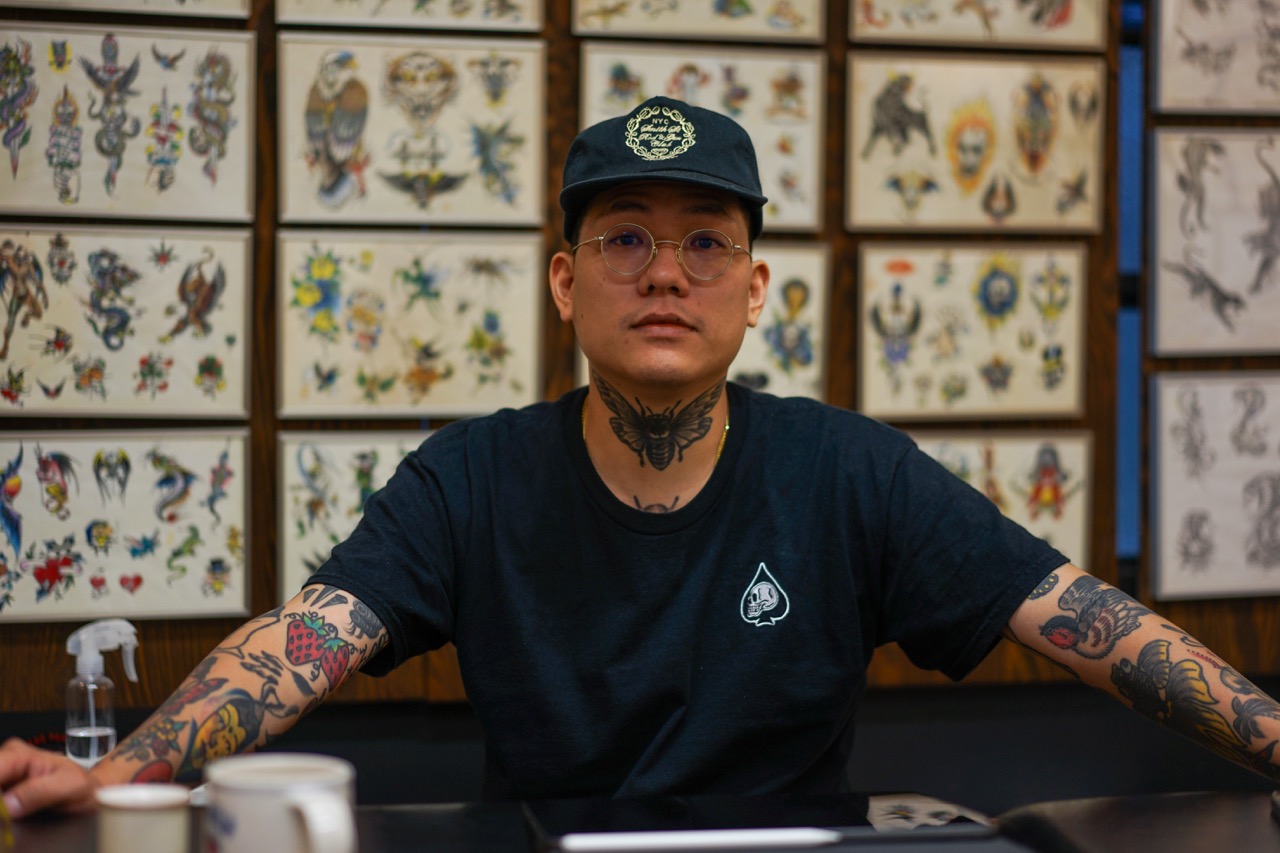Author Chris van Laak
Taiwanese folk belief has it that if you went swimming last month, you might have encountered the spirit of someone who was so unfortunate to drown in the ocean. Their spirit would have been unable to move on to the afterlife and/or be reincarnated; they would have roamed the sea for decades, centuries or even millennia—until now, until they found another unfortunate soul to take their place and free them from their predicament.
Avoiding open water is maybe the most common Ghost Month advice that Taiwanese give to visitors and residents with backgrounds in other cultures.

For one month of the year, typically around August, many Taiwanese adhere to a number of “quirky” taboos—and some are so serious about them that they think you better adhere to them, too. The taboos also require that you take down the laundry from the line before nightfall, avoid whistling at night, and postpone big decisions and anything else “risky.” Swimming is just one of those “risks”; they also include getting married, big-ticket purchases or having surgery.
On top of that, there are taboos that seem so outrageous you might wonder whether anybody really believes in them, or whether they’re just made up. For example, I once heard that during Ghost Month, you should not take the last bus at night because there’s a higher chance the driver is a ghost in disguise who’s planning to take you with him to the shadow realm.
Buddhist roots
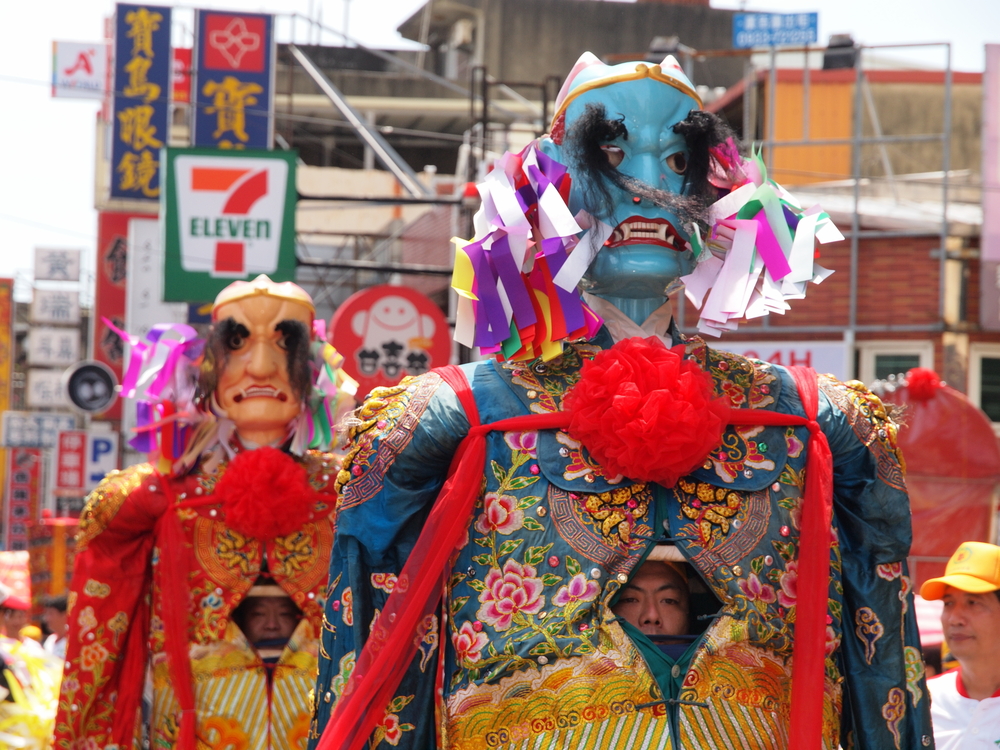
Ghost Month is not a joke though. Centered on the Ghost Festival on the 15th day of the seventh month of the Chinese lunar calendar, the tradition dates back millennia. It originates in the Buddhist Ullambana Sutra (盂蘭盆), which describes how Maudgalyayana, one of the Buddha’s closest disciples, discovers that his deceased mother is still roaming the Earth as a “hungry ghost” (餓鬼, egui). He seeks advice from the Buddha, who explains how to extend filial piety beyond the inevitable day of the passing of one’s parents, as well as pay respect to all the other spirits roaming the Earth while waiting to be reincarnated.
United in belief
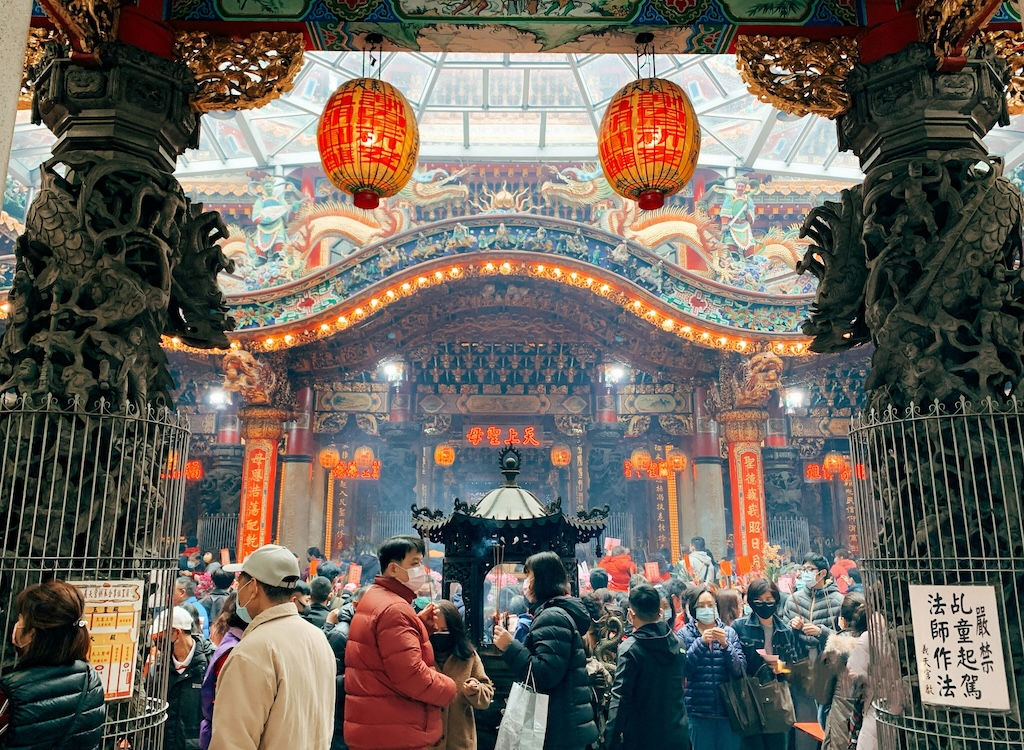
Regardless of whether they are Buddhists, Taoists and adherents of a wide variety of folk religions, many Taiwanese believe humans and wandering ghosts, also known as “good brothers” (好兄弟, hao xiongdi) and “good sisters” (好姐妹, hao jiemei), coexist in the same world during Ghost Month. With the gate between this world and the shadow realm thrown open for this one month, people and ghosts living in close proximity must afford due respect to each other; people must observe certain taboos and rituals.
A remarkable group among the roaming ghosts are the “hungry ghosts,” who usually have no descendants or whose descendants have not paid sufficient tribute to them after their passing.
Some believe that with no one providing for them in the afterlife, their throats will shrink so they will no longer be able to eat. Condemned to suffer eternal hunger because their throats catch fire whenever they try to swallow, their only respite is Ghost Month, when the gods extinguish the fire and allow them to roam and feast.
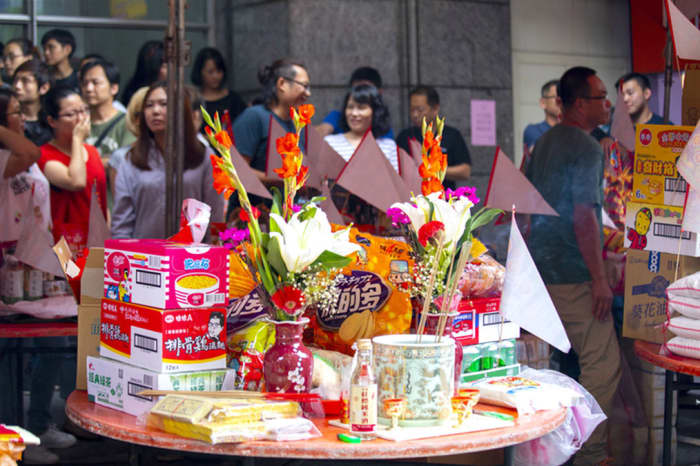
These ghosts, too, are being cared for during Ghost Month, for example at pudu (普渡) ceremonies at temples, where food is offered to them. Ghost Month is also known as Gratitude Month, during which Taiwanese pay respect to all those who have given their lives for a better tomorrow, for example the unnamed war dead who did not receive a proper burial during Taiwan’s tumultuous history.
Home-grown tradition
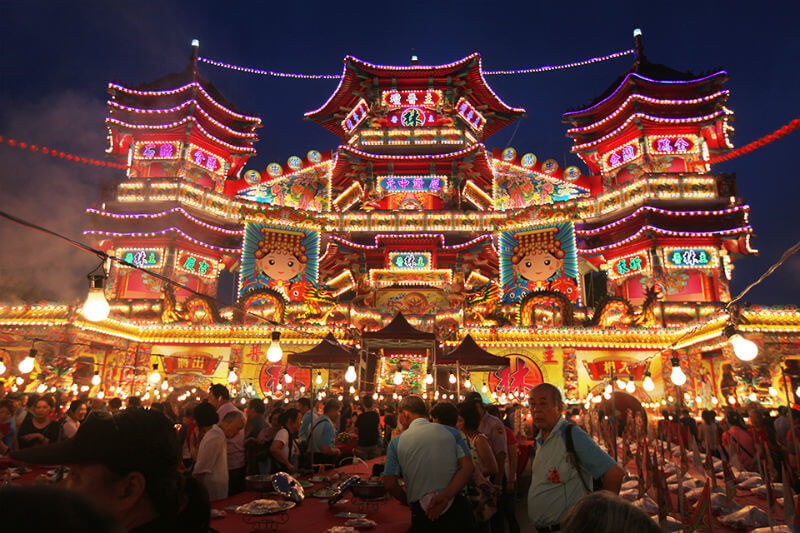
It’s no coincidence that Ghost Month emerged in Taiwan; nowhere else is the Ghost Festival stretched out into a full month.
A 2019 study by the Pew Research Center showed that Taiwanese society is uniquely predisposed to bringing about this quirk tradition. The nonpartisan US think tank found that while 27 percent of Taiwanese don’t practice any religion, 85 percent believe in “unseen beings.” That means the belief in ghosts is common even among Taiwanese who would otherwise consider themselves atheists or agnostics.
Speaking of agnosticism, only 8 percent of Taiwanese say they believe there is only one true religion, which allows for a rich tapestry of eclectic beliefs (apparently including ghost bus drivers).
The Pew study hints at the fact that Taiwan is a fertile ground for Ghost Month; it does not, however, reveal why.
Some general thoughts on ghosts
In the Taiwanese understanding, ghosts come in different forms, including as immortal deities, but they are generally the spirits of the deceased.
“All of these beings are born out of people’s fear, and sometimes awe, of the unknown, the unrecognized and the uncontrolled,” Chee-Hann Wu, a NYU associate professor and president of the North American Taiwan Studies Association, said with regard to Ghost Month.
However, Wu’s description also touches upon a central piece of the human condition—the fact that we ask ourselves about what happens to the soul after death.
All societies in history have asked themselves this question; and it’s not coincidental that the “burial rites” of early human species are interpreted as signs of their cognitive development toward being fully human. The need to rationalize what comes after our time in this world is as old as our species.
In places where one religion dominates though, and especially if that religion is monotheistic, such as Christianity or Islam, ideas of the afterlife have largely been monopolized by that religion. The belief in a vast Flemish canvas of ghosts roaming the Earth has been pushed to the fringes of what is deemed “rational religiosity.” With this tendency deeply ingrained in Christian and Muslim cultures, even those who no longer commit to their respective ancestors’ religion will not so easily return to believing in ghosts.
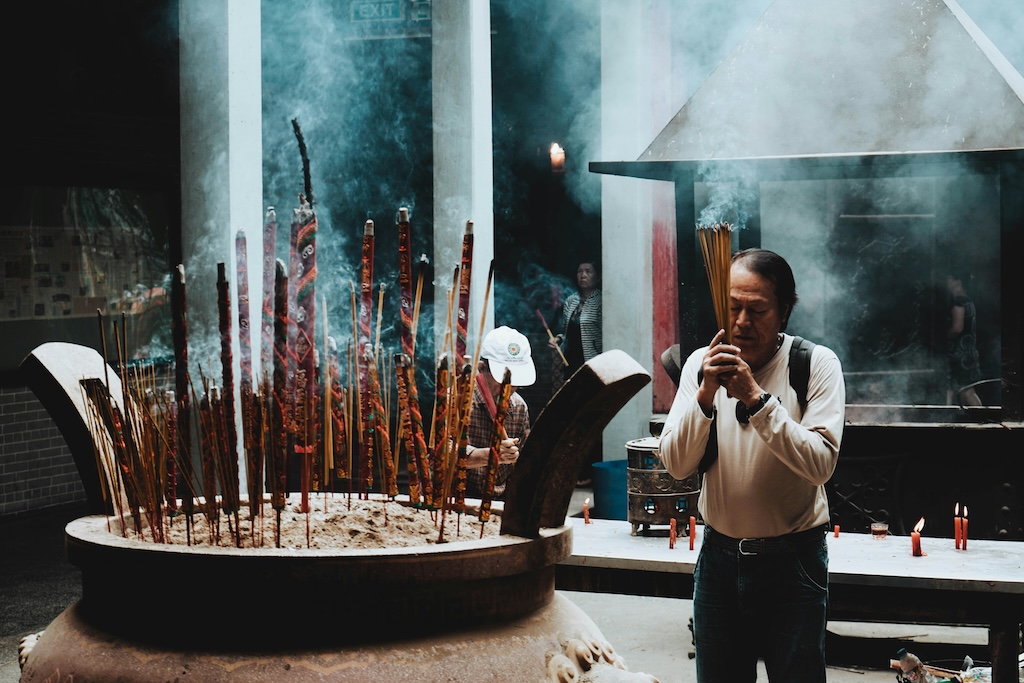
In the eclectic system of beliefs common among Taiwanese, however, this is not the case, especially because Buddhism, Taoism and folk religions have always tended to integrate outside ideas and stories instead of monopolizing their own version of spirituality.
Taiwanese, even if they no longer commit to any religion, maybe because they deem it irrational, can hold on to their belief in ghosts if it feels soothing to them.
Disclaimer
I don’t believe in ghosts and I find some Ghost Month rituals, such as burlesque shows for the entertainment of ghosts, quite silly. (You can find NSFW videos online showing middle-aged men who are clearly still alive as their main audience.)
The more I think about what’s at the core of Ghost Month though, the more I find it worthy of respect. I don’t need to fear encountering a ghost, being possessed by a ghost, having my life energy diminished by a ghost, or having my yin-yang balance disturbed by a ghost—all of which are common fears among those who believe in them—to understand that the typical Taiwanese belief in ghosts addresses a real, spiritual need.



